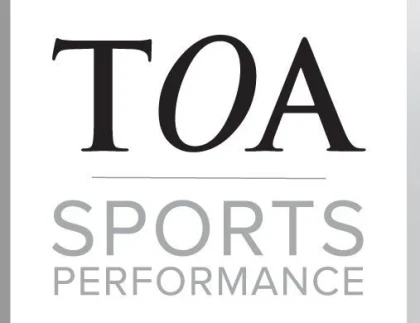Media Center
Fuel Your Performance

Proper nutrition is essential for the student athlete. Believe it or not, even what you eat several days before an endurance activity affects your performance. When you give your body the right fuel by eating a balanced diet and drinking enough water, you will gain more strength, power, and endurance when you train.
This article contains some general sports nutrition guidelines. To achieve top performance, your diet should be based on a variety of factors including your age, weight, physical condition, and the type of exercise you are doing. Consult your doctor for individualized sports nutrition advice.
Eat to Win
Eating the right combination of fuel (calories) from carbohydrates, proteins, and fats will give you energy for top performance.
Carbohydrates
Carbohydrates are the most important source of fuel. Healthy sources of carbohydrates are found in many foods, including:
- Beans and lentils
- Quinoa
- Whole-grain, black and wild rice
- Steel-cut, rolled, and old-fashioned oats
- Sweet potatoes, fresh and frozen fruit
- Plain non-Greek yogurt
- Sourdough and sprouted bread
- Whole wheat pasta
In general, aim to eat more carbohydrates from whole food sources, which contain more nutrients, and less carbohydrates from processed foods.
Your body converts the sugars and starches in carbohydrates into energy (glucose) or stores it in your liver and muscle tissues (glycogen). This gives you endurance and power for high-intensity, short-duration activities.
If your body runs out of carbohydrate fuel during exercise it will burn fat and protein for energy causing your performance level to drop. This may happen if you start exercising without enough stored muscle glycogen or if you exercise intensely for longer than an hour without eating more carbohydrates. It may also happen if you do multiple repetitions of high-intensity, short-duration exercises or if you participate in multiple events or training sessions in a single day.
Eating fruit, or another food high in carbohydrates, will help you replenish and maintain energy during competition.
Proteins
Protein is important for maintaining and building lean muscle mass. Healthy sources of lean protein can be found in many foods including:
- Fish and shellfish
- Eggs and egg whites
- Chicken and turkey
- Lean beef and lean pork
- Bison and wild game
- Plain Greek yogurt
- Lentils and beans
Proteins give your body the power to build new tissues and fluids among other functions. Your body cannot store extra protein, so it burns it for energy or converts it to fat. The amount of protein you need depends, in part, on your:
- Level of fitness. Physically active people need more protein than those who do not exercise. You also need more protein when you start an exercise program.
- Exercise type, intensity, and duration. Endurance athletes often burn protein for fuel, as do bodybuilders and other athletes who perform intense strength-building activities.
- Total daily calories. Your body burns more protein if you do not consume enough calories to maintain your body weight. This can happen if you eat too little or exercise too much.
- Carbohydrate intake. Your body may use protein for energy if you exercise with low levels of muscle glycogen or if you do repeat training sessions without eating more carbohydrates. When you start with enough muscle glycogen, protein supplies about 5% of your energy; otherwise, it may supply up to 10%.
Fats
How your body uses fat for energy depends on the intensity and duration of exercise. For example, when you rest or exercise at low to moderate intensity, fat is the primary fuel source. As you increase the intensity of your exercise your body uses more carbohydrates for fuel. If your body uses up its glycogen supply and you continue exercising you will burn fat for energy, decreasing the intensity of your exercise.
Athletes benefit from getting healthy fats from a variety of sources including:
- Avocado and avocado oil
- Extra virgin olive oil and walnut oil
- Egg yolks
- Seeds – chia, flax, pumpkin, and sesame
- Almonds, Brazil nuts, pecans, peanuts, pistachios, cashews
- Nut butters made from the nuts listed above
Drink Up
Water is the most important nutrient for athletes. Water comprises about 60% of body weight and is essential for almost every bodily function. Because your body cannot make or store water, you must replace the water that you lose in your urine and sweat.
- Drink enough fluids to ensure hydration. A good guideline to follow is, Drink 20 oz. of water 1 to 2 hours before exercise and an additional 10 to 15 oz. within 15 to 30 minutes of the event. Replenishing fluids lost to sweat is the primary concern during an athletic event. Drink 3 to 6 ounces of water or diluted sports drink every 10 to 20 minutes throughout competition.
Nutrition before Competition
What you eat several days before an endurance activity affects performance. The food you eat on the morning of a sports competition can ward off hunger, keep blood sugar levels adequate, and aid hydration. Try to avoid eating high-protein or high-fat foods on the day of an event.
To perform at your highest level, follow these general nutrition guidelines before an event:
- Eat a meal high in carbohydrates.
- Eat solid foods 3 to 4 hours before an event. Drink liquids 2 to 3 hours before an event.
- Choose easily digestible foods, rather than fried or high-fat foods.
- Avoid sugary foods and drinks within one hour of the event.
(Sources: AAOS Orthoinfo & Katie Vanhooser, PA-C, Certified Nutrition Coach)







